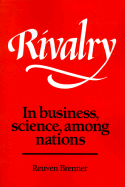Book contents
- Frontmatter
- Contents
- Preface
- Dedication
- 1 Theory of the entrepreneurial firm
- 2 Who are the entrepreneurs? (or, don't confuse brains with a bull market)
- 3 Competition – the leapfrogging game
- 4 Advertising, memory, and custom
- 5 Inventions and innovations in business and science
- 6 Origins of state-owned enterprises
- 7 Restoring the wealth of nations
- Appendixes
- Notes
- References
- Name index
- Subject index
Preface
Published online by Cambridge University Press: 01 June 2011
- Frontmatter
- Contents
- Preface
- Dedication
- 1 Theory of the entrepreneurial firm
- 2 Who are the entrepreneurs? (or, don't confuse brains with a bull market)
- 3 Competition – the leapfrogging game
- 4 Advertising, memory, and custom
- 5 Inventions and innovations in business and science
- 6 Origins of state-owned enterprises
- 7 Restoring the wealth of nations
- Appendixes
- Notes
- References
- Name index
- Subject index
Summary
This book looks at the behavior of enterprises, the organization of markets, the structure of industries (particularly scientific ones) by putting the entrepreneurs' and the decision makers' perceptions at center stage. This departure point provides a unifying viewpoint, leads to a close relationship between facts and interpretation, and enables insights for formulation of policies promoting innovations.
The book does not deal with “markets,” “capital,” or “technology,” but looks at the human being and the society in which he lives in order to understand the decisions to compete or not to compete, to bet on new ventures or not, to reorganize the firm or not, and so forth. This departure point stands in sharp contrast with the usual ones treated in the field of “industrial organization,” where firms are frequently treated as a simple-minded “brain,” a decision-making unit that has not much to do but adjust output and prices of one or two products to very simple imagined changes.
So the questions raised will be: What do “firms” do and for what end? How do they compete? Do they always have the motivation to compete? What role exactly do entrepreneurs and managers play? How can they increase productivity and profits?
- Type
- Chapter
- Information
- RivalryIn Business, Science, among Nations, pp. ix - xiPublisher: Cambridge University PressPrint publication year: 1987



